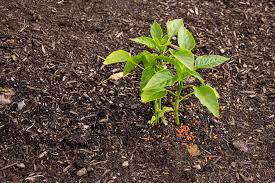
Jul . 25, 2024 08:14 Back to list
Exploring the Benefits and Production of Organic Fertilizers Rich in Potassium for Sustainable Agriculture
The Rising Importance of Potassium in Organic Fertilizer Production
In the quest for sustainable agriculture, the demand for organic fertilizers has surged dramatically over the past decade. Among the many essential nutrients that plants require for healthy growth, potassium is notable for its critical role in various physiological processes. As a result, potassium-rich organic fertilizers have gained prominence, prompting the establishment of dedicated factories to produce these valuable substances.
Understanding Potassium's Role in Plant Health
Potassium (K) is one of the three primary macronutrients required by plants, alongside nitrogen and phosphorus. It plays a vital role in several key processes, including photosynthesis, enzyme activation, and overall plant metabolic functions. Potassium helps regulate the opening and closing of stomata, thus aiding in the efficient use of water. This attribute is particularly crucial in times of drought or heat stress, allowing plants to maintain their physiological functions.
Moreover, potassium contributes to the strengthening of plant cell walls, which enhances resistance to diseases and pests. By improving plant health and resilience, potassium ultimately supports better crop yields, making it an essential nutrient for organic farming practices.
The Need for Organic Potassium Fertilizers
Traditional synthetic fertilizers provide essential nutrients but often come with adverse environmental impacts, such as soil degradation and water pollution. In contrast, organic fertilizers, including those rich in potassium, are derived from natural sources, promoting ecological balance and soil health. Organic potassium fertilizers are typically sourced from plant and animal materials, such as kelp, composted manure, and biochar.
The increasing awareness among consumers regarding the benefits of organic produce has heightened the demand for organic fertilizers. This trend has prompted the establishment of potassium organic fertilizer factories that focus on creating high-quality, sustainable products.
potassium organic fertilizer factories

Technological Advancements in Fertilizer Production
Modern fertilizer factories are equipped with advanced technology to ensure the efficient production of potassium-rich organic fertilizers. For example, anaerobic digestion processes convert organic waste into nutrient-rich digestate, which can be further processed to extract potassium. This innovative approach not only maximizes nutrient recovery but also helps in managing agricultural waste effectively.
Moreover, companies are exploring various methods of enhancing the bioavailability of potassium within organic fertilizers. By employing techniques such as microbial fermentation and biostimulation, manufacturers can improve the uptake of potassium by plants, thereby increasing the efficacy of their products.
Sustainability and Economic Prospects
The establishment of potassium organic fertilizer factories aligns with global sustainability goals aimed at reducing the carbon footprint of agricultural practices. By utilizing organic waste and promoting sustainable farming methods, these factories contribute to a circular economy, where resources are reused and environmental impacts minimized.
In addition to the environmental benefits, the production of potassium organic fertilizers creates new economic opportunities. Factories can provide jobs in rural areas, support local economies, and contribute to the growth of the organic farming sector. As more farmers transition to organic practices, the demand for high-quality organic fertilizers is expected to rise further.
Conclusion
As the agricultural landscape continues to evolve towards sustainability, potassium organic fertilizer factories are set to play a crucial role in meeting the demands of modern farming. By leveraging technology and focusing on eco-friendly practices, these factories contribute to healthier crops and more resilient ecosystems. The future of agriculture lies in the balance between productivity and sustainability, and potassium-rich organic fertilizers are undoubtedly a key component of this paradigm shift.
-
15-15-15 Fertilizer for Sale - Balanced NPK Crop Nutrient Boost
NewsJun.07,2025
-
Premium 13-13-13 Balanced Fertilizer 50 lbs for Rapid Growth
NewsJun.07,2025
-
Premium 30-10-0 Fertilizer High-Nitrogen Formula for Rapid Growth
NewsJun.06,2025
-
25-3-10 Fertilizer High N Formula for Lush Growth
NewsJun.06,2025
-
Best Organic Fertilizer for Vegetables & Fruits Natural Growth Boost at Lowe's
NewsJun.06,2025
-
30-15-30 High-Efficiency NPK Fertilizer Leading Granular Compound Suppliers
NewsJun.06,2025
